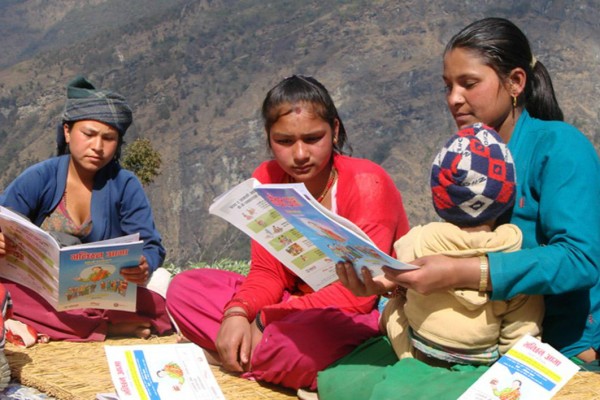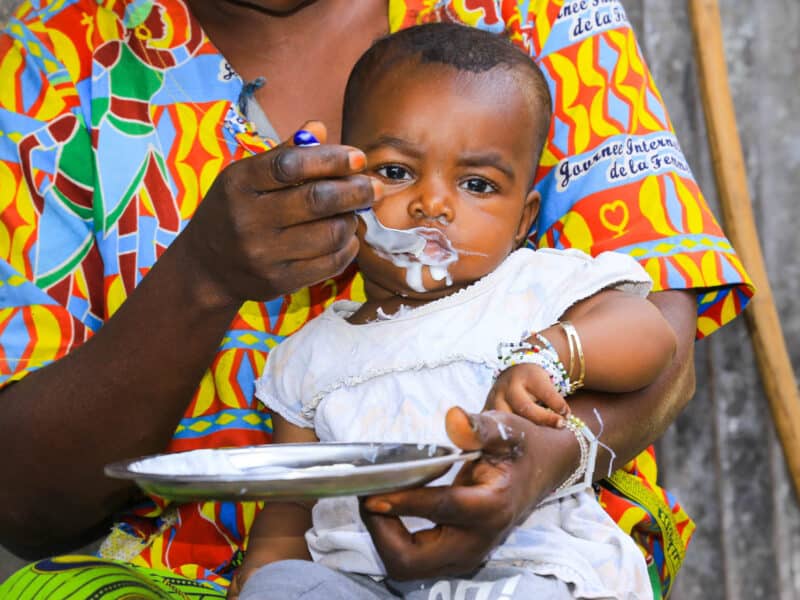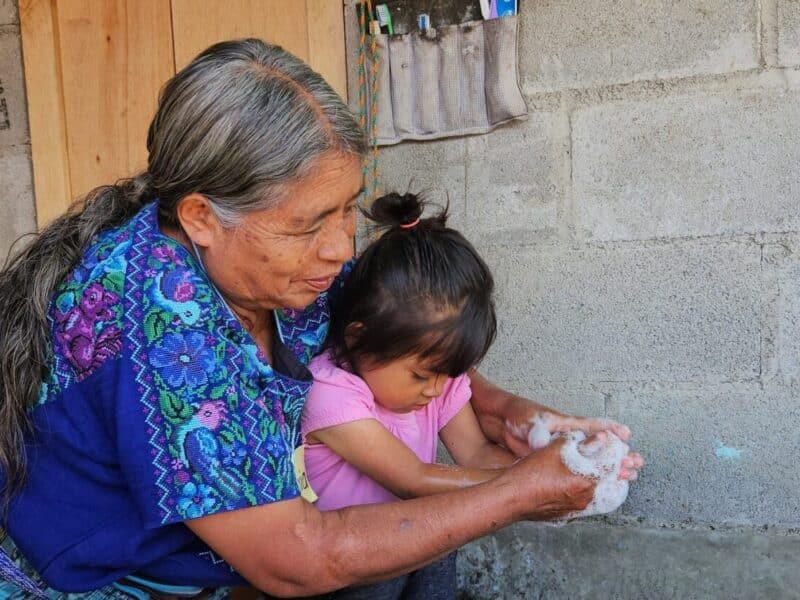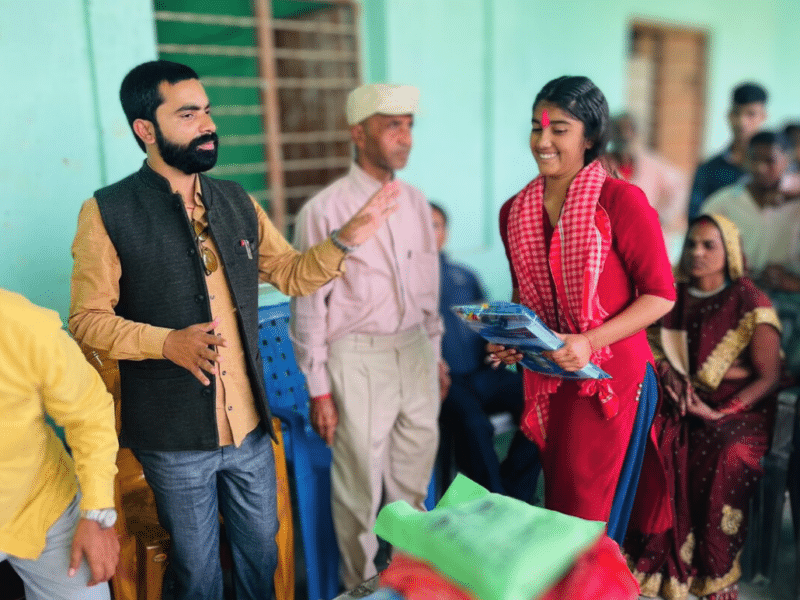Rimikka Khadka, Tulasha Shrestha and Bhola Hamal all agree on one thing: they are ardent fans of the Bhanchhin Aama radio program.
“[After] hearing this radio program I went for regular checkups and also took my iron tablets regularly,” said Rimikka Khadka of Sindhupalchok, Duskun-2.
For Tulasha Shrestha of Bhojpur-5, Bhanchhin Aama impacted not only her health, but also the health of her children. “My fourth child is now two months old and I am only feeding my breast milk,” she explains. “His health is good and it was much easier for me to give him birth than to my previous [children].”
And Bhola Hamal of Okhle-8, Udaypur said that Bhanchhin Aama made her better understand sanitation and hygiene. After listening to the program, she made a small chicken coop from bamboo to keep the chickens away from her living space.
Bhanchhin Aama (Mother says) radio magazine and the Hello Bhanchhin Aama phone-in programs were created by Suaahara Integrated Nutrition, a project funded by the U.S. Agency for International Development (USAID) that is seeking to improve the health, wellbeing and nutritional status of women and children during the “1000 days” from when a woman becomes pregnant to the child’s second birthday in 25 underserved districts across Nepal. The Johns Hopkins Bloomberg School of Public Health Center for Communication Programs (JHU∙CCP) provides communication support to this project, which includes the development of the Bhanchhin Aama radio program. The radio program is just one part of a broader campaign that is engaging communities and families through radio discussion groups, home visits, cooking and feeding demonstrations, health mothers group meetings and schools and children’s clubs.
The “spokesperson” of Bhanchhin Aama is a fictional forward-thinking mother-in-law who encourages simple doable nutrition and sanitation actions. The first phase ofBhanchhin Aama ran from November 2013 to May 2014 and was an enormous success. 25% of all people across the 25 target districts listened to the weekly program, and over 40,000 calls were made to the phone-in program with questions about nutrition.
As a result, Suaahara launched a second phase of the program in July. This phase will run until March 2015 and includes 39 new radio episodes about nutrition, sanitation and agriculture. The radio program will be broadcast on local FM stations and Radio Nepal, and will be aired in three languages: Nepali, Doteli and Awadhi. Listeners are encouraged to share their comments and questions through toll-free phone calls, SMS messages, Facebook, Twitter and email.
Developed under the leadership of Nepal Government Ministry of Health and Population, in addition to JHU∙CCP, Suaahara partner organizations include Save the Children, Helen Keller International, Jhpiego, Nepali Technical Assistance Group (NTAG), Nutrition Promotion and Consultancy Service (NPCS) and Nepal Water for Health (NEWAH). The Departments of Water Supply & Sewerage, Agriculture and Livestock Services have also contributed to the program.





